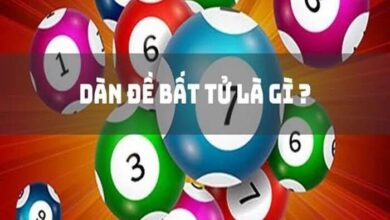Intellectual Property’s Contribution to the Creation of Casino Games and Betting Sites

Innovations in the design of casino games and betting technologies are developed and protected in large part by intellectual property (IP). As the gaming industry evolves, protecting intellectual property is vital. Developers, operators, and inventors must safeguard their ideas to stay competitive in a crowded market. Intellectual property rights protect creators’ ideas from unauthorized use or duplication. They cover everything from the layout of casino games to the technology behind betting systems.
IP protection is essential for platforms like 22BET, which seek to provide gamers with cutting-edge game designs and features. Developers must protect their tech and game ideas. A global audience seeks the best odds and unique betting experiences. This is to preserve their market position and stop illegal use.
Safeguarding Innovative Game Designs
Protecting creative content, like game design, art, and plots, is a key use of IP in the casino sector. Casino games, both digital and physical, often have unique sound effects, animations, graphics, and gameplay. The uniqueness of these components can be a big selling point for a casino platform, and they are essential to the overall player experience.
The main way to protect art in games is copyright. Game creators are granted exclusive rights to their imaginative creations under copyright, which stops unauthorized copying or distribution of their work. Copyright protects a slot machine game with complex animations and symbols. It prevents rivals from copying its unique visuals.
Since game creators spend much on making unique, appealing games, this protection is vital in a competitive market. Without copyright protection, rivals could steal designs. This would devalue the original inventors’ work and cause losses.
Protection of Technological Innovations through Patents
Modern casino games and betting sites owe much to tech and new designs. Patent protection ensures that creators’ tech discoveries are safe from rivals. This applies to a new algorithm for random outcomes in a game, and to the backend tech for a live betting system.
For new technologies and procedures, patents are a crucial type of intellectual property. They prohibit unauthorized use of protected technology. They grant inventors the sole right to use, market, and license their creations. For example, a new betting site may be patented. It uses advanced algorithms to improve betting. They provide personalized odds. By controlling access to the technology, the developers can prevent rivals from using the same techniques without permission.
Unique game mechanisms in casino games may potentially be covered by patent protection. A betting game can be patented if it uses a new method to handle payouts or compute odds. This guarantees the designers’ exclusive rights to the method. This kind of IP protection promotes innovation. It gives developers a window of exclusivity. They can profit from their tech without worrying about copying.
Protection of Trademarks for Recognition and Branding
The identity and branding of casino games and betting platforms are greatly influenced by trademarks. They aid in creating a distinctive brand and setting a platform apart from its rivals. In the casino sector, trademarks protect a game’s name, a platform’s logo, and certain brand-related words or taglines.
Furthermore, particular game titles and branding are also protected under trademark law. A game’s developer can trademark its title and related elements if it has a unique name and visual identity. It keeps the game’s uniqueness and value. It stops others from making games with similar names or graphics.
Opportunities for Collaboration and Licensing
Additionally, intellectual property rights create chances for partnerships and licensing. Betting platform operators and game creators can boost profits. They can do this by licensing their trademarks, game designs, and technology to others. A business that makes a popular slot machine could license its designs and game mechanics to other operators and developers. It would earn royalties from its intellectual property.
Collaborations between various businesses in the gaming sector might also fall within the purview of licensing. Licensing agreements benefit both parties. Operators improve their services with new games. Developers get paid and recognized for their ideas.





